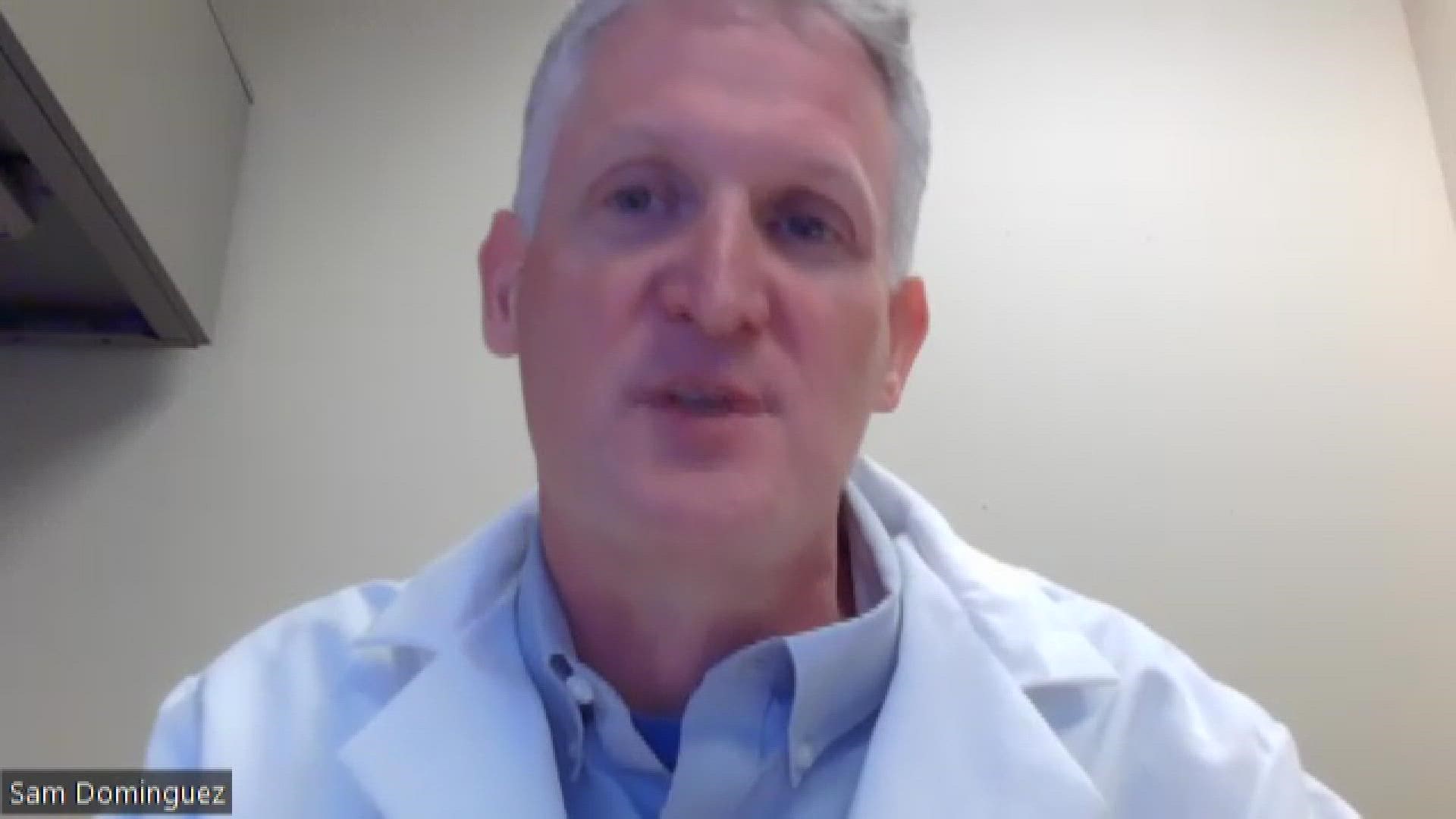COLORADO, USA — In 2022, normally seasonal, and often mild, illnesses like RSV, colds and influenza have turned into something turbocharged in children.
Now, Colorado health officials report an increase in pediatric hospitalizations due to “group A strep,” a bacteria that can cause various serious infections.
“This is the same bacteria that causes strep throat everyone thinks about,” said Dr. Sam Dominguez, pediatric infectious disease doctor at Children’s Hospital Colorado.
“Normally, this is a very common and usually relatively mild and easy-to-treat infection in kids,” he said.
“What we’re seeing now is something different. We are seeing somewhat unusual and more severe presentations of group A strep," he said. "Some kids with severe pneumonia, some kids with sepsis, some kids with something called toxic shock, and some kids where we see more disseminated disease where it can get to other parts of the body – the bones or the joints.”
The Colorado Department of Public Health and Environment said there have been 11 reported cases of invasive group A strep in the Denver metro area since Nov. 1. CDPHE said two of those patients died, but their official cause of death hasn’t been confirmed yet.
CDPHE said the last reported pediatric death from group A strep was in 2018.
“I also want to mention, this is relatively rare,” Dominguez said. "So even though group A strep infections in general are very common, the more severe or invasive form is relatively rare.”
Dominguez said a patient can also get sick with multiple illnesses at once, meaning some patients might have RSV and group A strep. He said RSV and influenza continue to be the primary diagnoses among patients admitted to the hospital right now – with both contributing to a far greater patient volume than group A strep patients.
NBC News reports pediatric hospitals in three other states are also seeing a higher-than-average number of cases this year.
Dominguez said group A strep is treatable.
“Yes, we can definitely treat group A strep infection,” he said. “We have very good antibiotics to treat group A strep. Actually the best one is one that’s been around a long time: penicillin. It’s a very good drug for treating group A strep, and lots of other antibiotics can treat group A strep.”
CDPHE said parents and caregivers should watch for these symptoms of group A strep:
- sore throat
- fever and chills
- new rashes, skin bumps, or red patches of skin that may be painful
CDPHE said some severe group A strep infections may occur as a complication of common respiratory infections like RSV, flu or COVID-19.
Parents should call their child’s healthcare provider if they develop new or worsening symptoms during respiratory infections. Unlike RSV, which predominantly affects very young children, group A strep can affect kids and adults of all ages.
“We’ve had about 2-3 cases in our office,” said Dr. Michael Milobsky, who runs Pediatrics at the Meadows in Castle Rock. “The ones we're seeing have come in either with a viral upper respiratory illness, and then developed a soft tissue or overt skin infection or pneumonia, or they came in with what looked like a bad case of strep that turned into an abscess in the head or neck.”
It's been a rough year for pediatricians and parents alike. Milobsky’s office has stayed very busy with RSV cases, influenza cases and more.
“It’s all mixed together. We’re seeing a whole grab-bag of things. And definitely still at punishingly high numbers,” he said.
“Everybody who has little kids, in winter, in daycare, knows what it means to have your kid sick most of every month. But at this level of intensity and seriousness – that’s what’s different," he said.
Adding to parents' stress: a shortage of some antibiotic medications.
“At the end of each day, our doctors are getting an average of 6-8 calls from pharmacies saying ‘we're out of this, or out of this,’” Milobsky said. “So it is a little bit scary and concerning when we’re hearing about a rise in these invasive bacterial infections at the same time people are finding it harder to get ahold of basic prescriptions for antibiotics.”
SUGGESTED VIDEOS: Latest from 9NEWS

